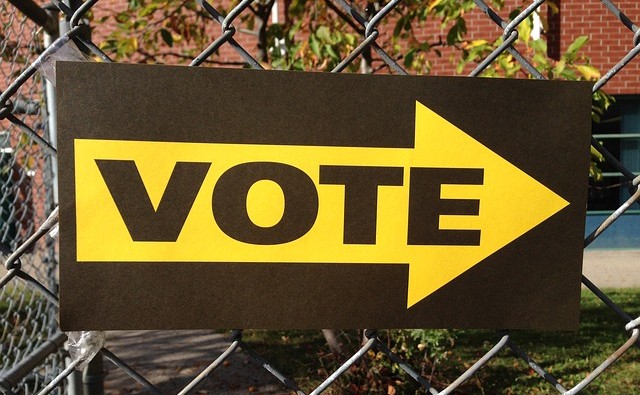 73% of Asian Americans worry about experiencing hate crimes, harassment and discrimination at least “sometimes”
73% of Asian Americans worry about experiencing hate crimes, harassment and discrimination at least “sometimes”
Health care, jobs and the economy, crime, education, gun control and the environment are the top issues for Asian Americans for deciding their votes in the November 8 midterm elections, according to a recent survey.
Voting rights and addressing racism were also important issues for them, according to the bi-annual survey by Asian and Pacific Islander American Vote (APIAVote), AAPI Data, and Asian Americans Advancing Justice on the top of mind issues ahead of the elections.
Three in four (73%) of Asian Americans worry about experiencing hate crimes, harassment and discrimination at least “sometimes” and 24% said they worry about it “very often.”
Read: Health, jobs, economy top concerns of older Asian American voters (October 26, 2020)
Among those who say they worry “very often” about hate crimes, support for Democratic House candidates is higher than support for Republican House candidates by a 3 to 1 margin, according to the report.
Asian American respondents ranked health care (88%), jobs and the economy (86%), crime (85%), education (82%), gun control (73%) and the environment (75%) as “extremely important” or “very important” issues for deciding their votes in November, according to the survey.
On addressing issues of health care, gun control, the environment, voting rights, and racism, Asian American respondents said Democrats were doing a better job than Republicans.
But on addressing economic issues, crime, and foreign-policy, respondents were more split in their assessment of the two parties’ handling of the issues.
More than three fourths (77%) of those surveyed agree the United States should have stricter gun laws, with 61% agreeing “strongly.”
A strong majority (59%) also said they “agree somewhat” or “agree strongly” that undocumented immigrants should have an opportunity to eventually become citizens in the United States.
By a 2-to-1 margin, Asian American registered voters oppose bans on books and bans on lessons about racism in American history by state/local governments or school boards.
More than half (56%p of Asian American respondents held a “very favorable” or “somewhat favorable” impression of President Joe Biden compared to 29% who expressed either a “very favorable” or “somewhat favorable” impression of his predecessor Donald Trump.
Television was the most common news source for Asian American respondents (65%) and Facebook (32%) was nearly as common a news source as traditional print newspapers (36%).
For some groups, especially Vietnamese Americans (51%), YouTube was regularly consulted as a news source.
Asian Americans voted in record numbers in 2016, 2018 and again in 2020. This trend continued in 2021, and the survey foresees large turnout numbers moving forward.
More than two-thirds of registered Asian Americans surveyed say they plan to vote, but only about half have been contacted by either of the major parties.
More than half (52%) of Asian Americans said they had not been contacted at all by the Democratic Party in the past year, and 60% of Asian Americans said they had not been contacted at all by the Republican Party in the past year.
About half (51%) of Asian American registered voters surveyed say they prefer to cast their ballots by mail or drop-off box, rather than in-person at a polling places.
Asian American registered voters as a whole were more likely to say they would vote for Democratic candidates compared to Republican candidates in House and Senate elections.
Read: Election preview: The top issues driving Asian American voters to the polls (October 24, 2022)
Among national origin groups, Indian Americans were the most likely to say they would vote for Democratic candidates. Vietnamese Americans were split (Senate) or leaned toward the Republican candidates (House).
About 44% of Asian American registered voters surveyed think of themselves as Democrat, 19% think of themselves as Republican, and 29% consider themselves Independent.
The remainder “do not think of themselves in terms of political parties,” identify with another party, or said they don’t know), according to the survey.



